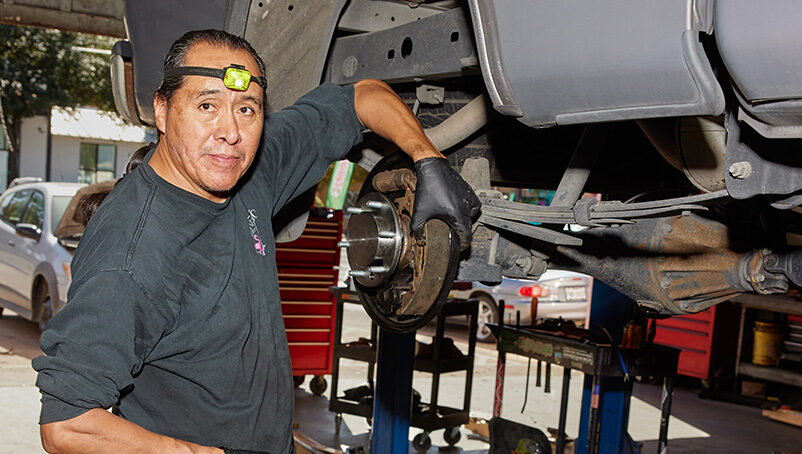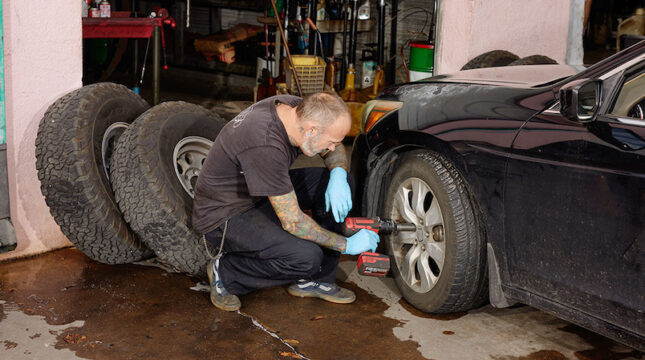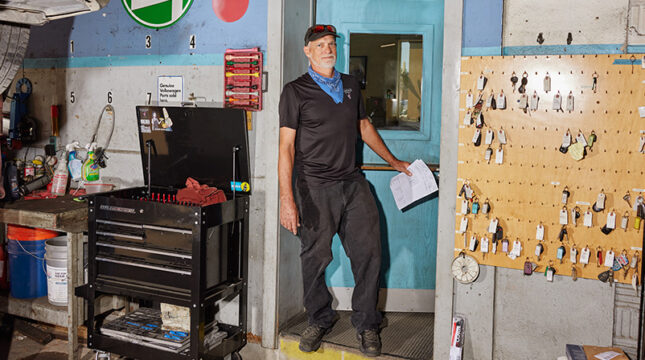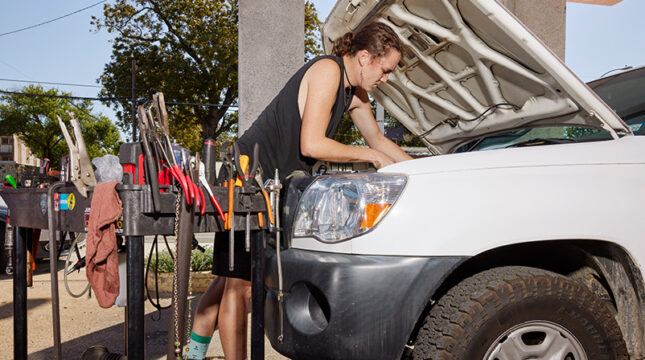Types of auto repair shops
Not all auto repair shops are the same. Before you strike out on your own, you’ll need to decide what type you want to open. There are a few options to choose from.
- Dealer. Many car dealers offer auto repair services for the makes and models they sell. But unless you plan on opening a car dealership, this won’t apply to you.
- Independent. Independent shops offer a variety of general maintenance and repair services for various makes and models. Services may include oil changes, tire rotations, brake replacements, engine repair and more.
- Specialty. As the name implies, these shops specialize in a particular area. They may only work on specific vehicle brands such as BMWs or Audis or offer limited services such as brake or transmission repairs.
Auto repair shop vs. auto body shop: What’s the difference?
Although some people use the terms interchangeably, a repair shop isn’t the same as a body shop.
Auto mechanics provide maintenance and repair services for the mechanical components of vehicles such as the engine, brakes, transmission and more.
Auto body shops repair damage to the exterior of vehicles such as the doors, bumpers, hoods, etc.
Garage vs. mobile mechanic business
After choosing the type of mechanic shop you want to run, you’ll need to decide whether to take your business to your customers or have your customers come to you. There are pros and cons to each option.
Garage
Garages have higher start-up costs than mobile businesses. However, with a garage, you don’t have to worry about the weather interfering with your ability to do your job, and you have space to stock parts.
Mobile mechanic business
Mobile businesses will save you money on overhead and are convenient for customers. But without space for inventory, you’ll need to custom order most parts, which can mean delays for customers.
You’ll also need to make sure customers have enough space in their driveways or garage for you to work. If they don’t have a protected area, you may not be able to work in all types of weather.
How to start a mechanic shop
Getting your business up and running won’t happen overnight. Here are a few steps to help you prepare.
Set up your business
When you’re starting a mechanic shop, you must decide how to structure your business. There are several options to choose from.
- Sole proprietor. If you’re a one-person shop, this is the simplest way to get started. But this business structure offers little protection for your personal assets if someone sues you.
- Limited Liability Corporation (LLC). Establishing an LLC separates your personal and business assets and limits your personal legal liability. However, there are some costs associated with creating an LLC. You’ll need to pay a fee to register and an annual filing fee.
- Partnership. If you’re starting a business with one or more other people, you may be able to set it up as a partnership. Every partner is responsible for contributing to the company in some way (e.g., time, money, special skills, etc.), has a stake in the business and shares in the profits and losses.
- S Corporation (S-Corp). This structure allows small businesses to incorporate their operations as bigger companies do. But you won’t be taxed twice like larger corporations. There may be some tax benefits to forming an S-Corp, but it depends on how much money you make.
How you structure your business can have tax and legal implications. If you have questions, consult a tax professional or attorney who can advise you based on the details of your unique situation.
Get licenses, permits and certifications
Most businesses need a license, permit or certification to get up and running, and a mechanic shop is no exception. Requirements vary based on your location, so it’s a good idea to check with your state, county and town. Here are some common requirements.
- Business license. Nearly every business in the United States needs a business license to operate legally.
- Occupancy permit. If you’re opening a brick-and-mortar location, you’ll likely need an occupancy permit. This shows that your shop meets local zoning and building requirements and is safe for employees and customers.
- Employer identification number (EIN). If you choose a business structure other than sole proprietorship, you typically need an EIN to pay your taxes.
- Environmental certifications. The Environmental Protection Agency (EPA) requires all auto repair shops to have an EPA refrigerant handling certification if they work on vehicle air conditioning systems. Your state or local jurisdiction may also have other requirements.
- ASE certifications. Technically, you don’t need an ASE certification to start your business in many states, but it will make your life easier. Certifications help you build credibility with your customers. They may also improve your chances of securing financing if you need a loan to get your business off the ground.
Plan for your future
Getting started without a solid plan could cost you time and money. Developing an auto repair shop business plan provides you with a blueprint of what you need to get your business up and running and a roadmap for where you want it to go.
Business plans don’t have to be complicated, but they should contain a few key elements, including:
- An overview of your business
- Company details (i.e., business structure, founder/owner, etc.)
- Market analysis
- Service offerings and pricing
- Financial projections
- Marketing plan
A business plan is a valuable document that can help you stay on track. And if you plan to apply for financing to fund your business, it’s necessary. Lenders will ask for a copy of your plan when applying for a business loan.
Protect your investment with insurance
Starting an auto repair business can be costly, and it’s important to take steps to safeguard your investment. Auto repair shop insurance can help protect you from a financial loss. Here are four common types of coverage to consider as you get started.
- General liability. This type of coverage protects businesses from many of the most common risks they face, including non-employee injuries and property damage. It can also help pay court costs, legal fees and judgments if someone sues you.
- Commercial property. You’ll need equipment and supplies to do your job. Commercial property insurance can help protect them if they’re damaged, stolen or malfunctioning. It can also help replace your income if you temporarily suspend your operations because of a covered event.
- Commercial auto. Personal auto insurance policies don’t usually protect business vehicles. If you have cars, vans or trucks you use for work, you’ll need a commercial auto policy. If you plan on opening a mobile auto repair shop, this type of coverage is a must.
- Garagekeepers liability. This type of coverage is available as an add-on to a general liability policy. It covers damage to vehicles you don’t own that are left in your care.
Promote your mechanic shop
“If you build it, they will come” isn’t a marketing strategy. Once your business is up and running, it’s important to promote your services to keep a steady stream of customers coming through the door. Here are a few ways to get the word out.
- Website. You don’t need anything fancy. However, setting up a basic site will make it easier for potential customers to locate you when they do a Google search for auto mechanics in your area. DIY website builders make it easy and inexpensive to get your site up in a matter of hours.
- Grand opening. Hold a grand opening celebration to let individuals and businesses in your area know you’re open for business.
- Ask for referrals. Tell everyone you know that you’re starting your own business and ask them to send people your way.
- Advertisements. Take out an ad in the local paper or on your local radio station. These targeted channels will only reach potential customers in your area.
- Signage. Make sure you have a sign on the outside of your shop that’s easy for people to see when they walk or drive by.





